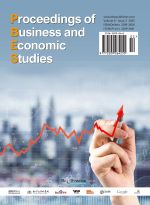Abstract
In the context of the global “double carbon” goal, this article uses the Analytic Hierarchy Process and Multiple Linear Regression combined with a survey questionnaire to study the issue of carbon literacy among residents in Chongqing. The weights of each dimension are determined to promote the formation of a good situation of multi-party collaborative promotion and help achieve the “double carbon” goal. The level of carbon literacy reflects the residents’ understanding of carbon literacy and has important significance for economic and social operation and environmental protection. The results indicate that the deepening of the concept of carbon inclusiveness and the continuous advancement of technology will lead to a continuous process of improving the carbon inclusiveness literacy of Chongqing residents. Corresponding suggestions are proposed on how to improve the carbon inclusiveness literacy of Chongqing residents, which is of great research significance.
References
Yan Y, 2023, Digital Life and Carbon Inclusion Literacy, dissertation, Shandong University of Finance and Economics.
Zeng P, Jing K, 2024, The Practical Dilemma of Carbon Inclusion under the “Dual Carbon” Goal and its Legal Solution. Journal of Xinyu University, 29(03): 31–38.
Hu B, 2024, Practical Review and Legislative Improvement of the Carbon Generalized System of Preferences. Journal of Hebei University (Philosophy and Social Sciences Edition), 2024: 1–14.
Yan X, Ding C, Xin L, 2024, Research on the Impact of the Carbon Generalized System of Preferences on Inclusive Low-carbon Growth. Ecological Economy, 40(09): 13–22 + 47.
Xiang L, Wang H, Li Y, et al., 2024, Research on the Carbon Inclusive Mechanism Construction Path Led by the “Two-carbon” Goal. Environmental Education, (09): 34–37.
Alexander RD, 1975, The Search for a General Theory of Behavior. Systems Research and Behavioral Science, 20: 77–100.
Ajzen, 1991, The Theory of Planned Behavior. Organizational Behavior and Human Decision Processes, (4): 179–211.
Wang S, Hong J, Li H, 2024, Spatial and Temporal Heterogeneity of Influencing Factors of Carbon Emissions in Urban Energy Consumption in China. World Geographic Research, 33(08): 102–116.
Peng X, Zhu Q, 2010, Analysis of the Impact of Population Situation and Consumption Pattern on Carbon Emissions in Our Country. Population Research, (01): 48–58.
Shi H, 2015, Research on Low-carbon Consumption Behavior and Influencing Factors of Urban Residents — a Case Study of Fuzhou City, Fujian Province. Resource Science, 37(02): 308–317.
Zeng J, 2023 Unleashing the Potential of Healthy Consumption and Promoting People’s Better Life — The Central Committee of the Agricultural and Labor Party Launched a Key Investigation and Survey in 2023. Forward Forum, (05): 11–14.
Wu Y, 2024, Research on the Influencing Factors of Chengdu Citizens’ Green and Low-carbon Behavior under the Generalized System of Carbon Preferences, dissertation, University of Electronic Science and Technology of China.
